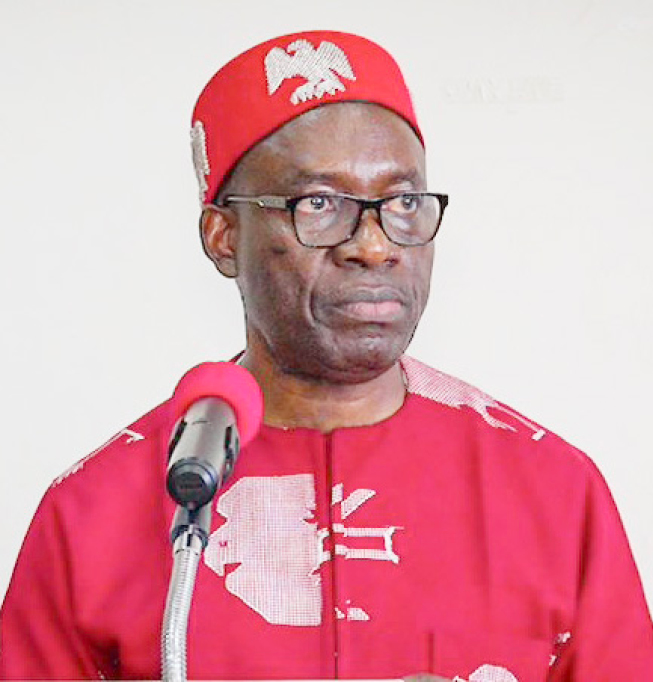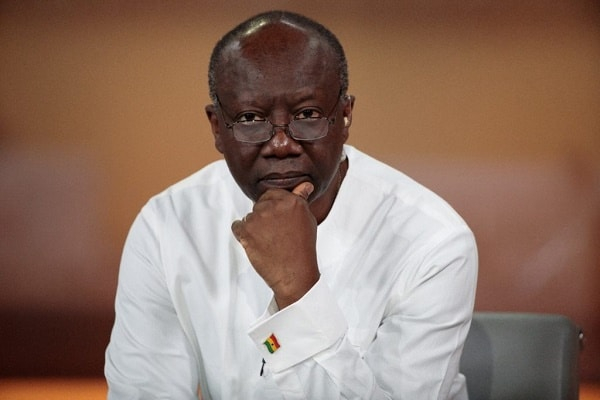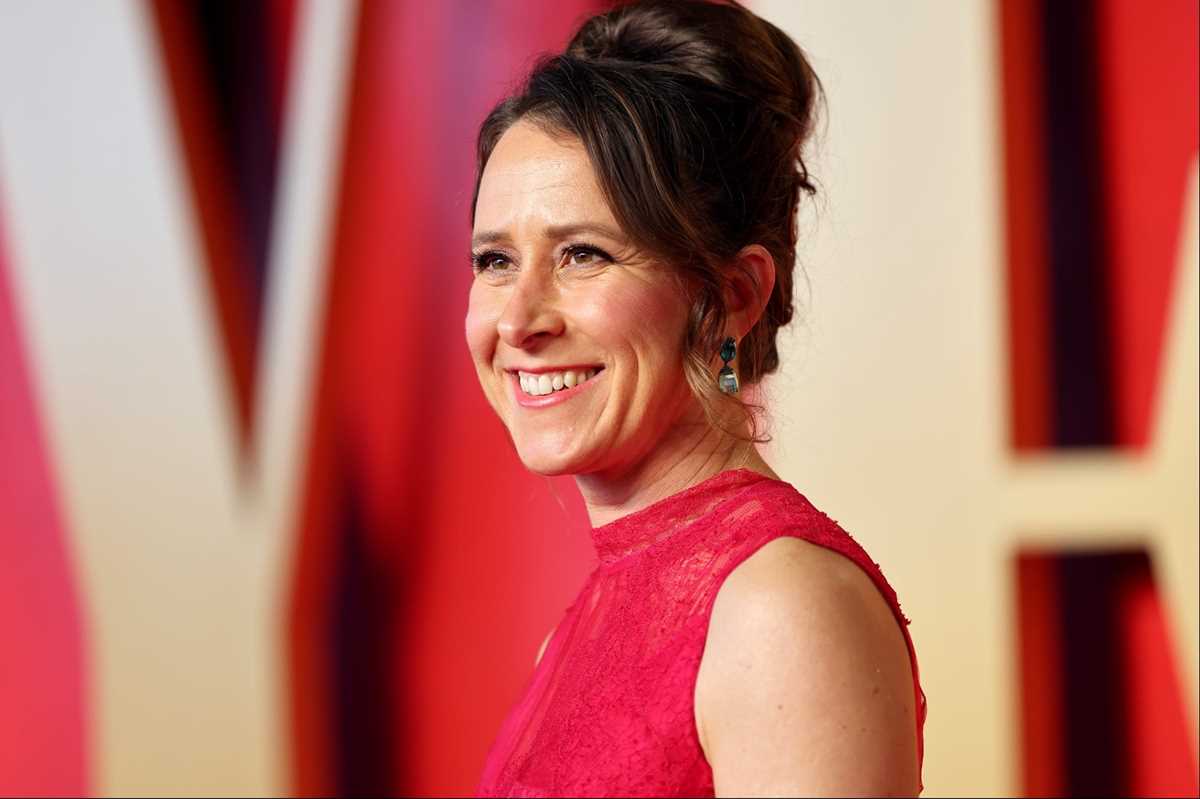It's No Joke - Through the Fog, by Elliot Kirschner
Dear Friends,
There’s a lot of news out there, but I’ve found that sometimes a moment that feels small and insignificant can be surprisingly instructive. Not just a reflection of where we are—but a sign of where things might be headed. There are heavy crosswinds blowing. But even in the darkness we’re seeing now, what might things look like if (and I believe when) the reckoning comes?
I thought of this yesterday when reading reports about a curious occurrence at something called the Breakthrough Prize. Many of us in and around science are familiar with the prize. It was launched a little over a decade ago by several billionaire Silicon Valley couples known for their support of science: investor and physicist Yuri Milner and his wife Julia, Google co-founder Sergey Brin and his then-wife Anne Wojcicki (founder of 23andMe), and Facebook co-founder Mark Zuckerberg and his wife Priscilla Chan (a physician).
The idea was billed as a way to celebrate scientists and scientific achievement, to raise public awareness about the importance of science—essentially by turning scientists into celebrities. As Wojcicki said, “These scientists should be household names and heroes in society.” Science and scientists should get more recognition across the board.
The culmination of this effort is, of course, an annual star-studded gala that brings together Hollywood’s beautiful people, big tech money, and usually older, already-famous (at least in their fields) researchers. The organizers bill it as “The Oscars of Science,” and the winners—across life sciences, fundamental physics, and mathematics—are each handed an eye-popping $3 million. As Brin once put it, "Curing a disease should be worth more than a touchdown.”
If you’ve never heard of the prize—or only have vague notions—I think it suggests how successfully the stated goal of elevating science in the public consciousness has been achieved. I’d argue that the cumulative $326 million in prize money (not to mention staff budgets and the cost of throwing the galas) may have bought some scientists nice vacation homes—but the return on that investment could have been greater if spent on actual science communication than on something that shows up as a few lines in a short news story.
Beyond its relative insignificance, however, I have heard from many scientists who think the whole idea of the award was flawed from the start—just as they are critical of most science awards. The Prize’s mission statement says it is “celebrating individual achievement and honoring scientists as heroes of our society.” The emphasis on “individual” is theirs, which is telling. The power of science is rarely the genius of a single person; it’s the slow, collective work of building on the insights of others. That’s why many scientists also believe the Nobel Prize—limited to just three recipients per category—similarly distorts the reality of scientific achievement.
But in Silicon Valley, there’s of course a cult of ego. Many believe their singular genius—not timing, teams, or luck—is the source of their wealth and success. Haven’t we all gotten a lesson in how poorly that corrosive mindset has shaped this chapter of history?
There are two other bullet points in the Prize’s mission statement, and they too are worth examining.
The Prize is supposedly “inspiring the next generation of scientists.” But is the best way to inspire a toiling graduate student—facing a bleak funding landscape and an uncertain job market—really to give bucketloads of money to already well-off scientists deep into their careers? Furthermore, the next generation of scientists is much more diverse than older generations, yet the winners of the Breakthrough Prize have been overwhelmingly white, and more than 90 percent of them are male. This reinforces stereotypes that don’t feel very inspiring.
But it’s the last mission statement that is the most relevant for our times. It says the prize’s goal is “championing science for the benefit of all as a global, apolitical organization.” Well, we can all see that science has become incredibly—and destructively—political. The regime running the country today is literally laying waste to American science. It is trying to destroy research universities and the means by which the federal government funds and supports science—at the CDC, the NIH, the NSF, NOAA, USAID, and other agencies. It is attacking independent thought, deleting data, and undermining public health. It spreads lies about vaccines and climate change. As for the “global” aspect of science, the regime is canceling foreign student visas and trashing global scientific organizations.
This is the most direct assault on knowledge since perhaps when the Catholic Church tried to cancel Copernicus and ganged up on Galileo.
And all this brings us to what transpired recently at the Breakthrough Awards dinner.
It was time for the Dutch theoretical physicist Gerard ’t Hooft to receive his prize, and the presenters were actors Seth Rogen and Edward Norton. Norton took the stage, apparently praising the support for science from those in the room. Indeed, many in and around Silicon Valley, including those who attend the gala, are big supporters and funders of science.
But then Rogen went off-script and dropped a rhetorical bomb: “It’s amazing that others in this room underwrote electing a man who, in the last week, single-handedly destroyed all of American science,” the comedic actor said. Like a lot of the best jokes, it was grounded in truth. As many of you know, Brin and Zuckerberg each gave $1 million to Trump’s inauguration and have tried to curry favor with him. Another person in attendance was Amazon founder Jeff Bezos. He even presented one of the awards. He has also praised Trump and caused chaos and resignations at the newspaper he owns, The Washington Post, for shifting the paper’s editorial stance to be more pro-Trump and for refusing to print an endorsement of Kamala Harris.
According to The Hollywood Reporter, Rogen’s joke was mostly met with silence and a smattering of applause—probably because it hit far too close to home. But Rogen wasn’t done. He went on to say, “It’s amazing how much good science you can destroy with $320 million and R.F.K. Jr. very fast.” The New York Times, covering the controversy, wrote, “It is unclear what Mr. Rogen was referring to with the $320 million.” But I think he might have been referring to the total amount of Breakthrough Prize money awarded over the years, as noted above.
All this would probably have gone largely unnoticed—following the Breakthrough Prize’s long history of making nary a ripple in public consciousness—if not for a little bit of editing. You see, when the organizers posted the video of the ceremony on YouTube, they cut Rogen’s comments. They later claimed, “This year’s ceremony lasted longer than the prior few years, and several edits were made in order to meet the originally planned run time.”
Really? You want us to believe that? It’s YouTube—you can post as long as you want. And the full video clocks in at nearly 1 hour and 40 minutes (who’s watching that?). Rogen’s comments took all of—what—maybe 30 to 45 seconds? It’s also unclear if any other edits were made. As Dan Rather says, “Don’t piss on my boot and tell me it’s raining.”
I think Brin and Zuckerberg really do think of themselves as supporters of science. They would point out that their philanthropies have given billions to scientific research. But here’s the problem: All of that doesn’t mean a thing compared to the destruction wrought by the regime they’ve helped normalize and support. Add to that the fact that Google’s YouTube and Facebook are major amplifiers of anti-science rhetoric and conspiracy theories. You know who else went to the Breakthrough Prize dinners in the past? None other than Elon Musk.
Whatever good these people tell themselves they’re doing is far outweighed by the damage they’ve enabled. Seth Rogen knows it. The scientists who received this year’s awards—and those who came before—probably know it too. And deep down, I think even the tech elite know it. Even if some are still in denial.
As for the American public—and the broader world? More and more people are paying attention. The opposition is empowered. We know the names of the capitulators and the collaborators. Science is about pursuing the truth, wherever it leads. You can edit a video or scrub a transcript—but you can’t hide what we all see.
When the full reckoning comes, the judgment won’t just be a quip at a black-tie affair. It’s going to be public. It’s going to be loud. And it will be transformative.
If you are on and wish to follow me, you can find me at: @elliotkirschner.bsky.social










